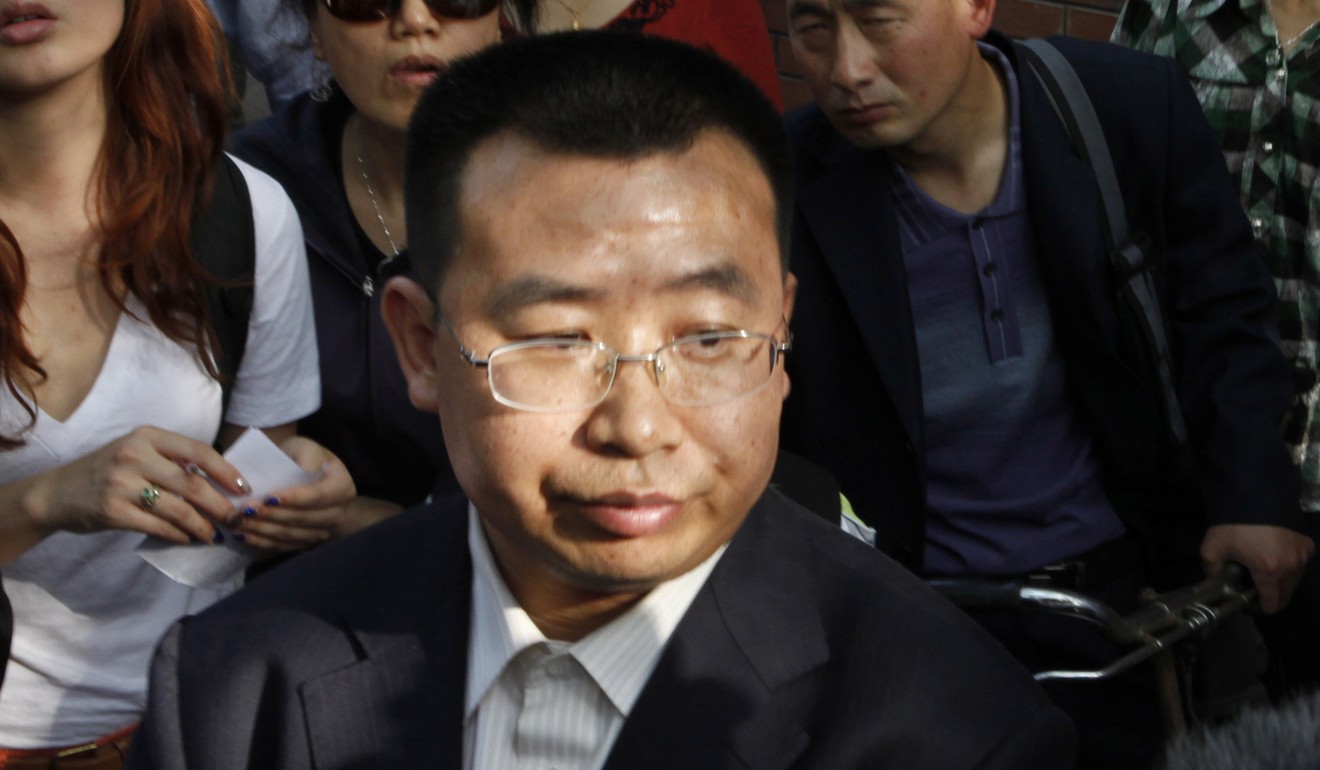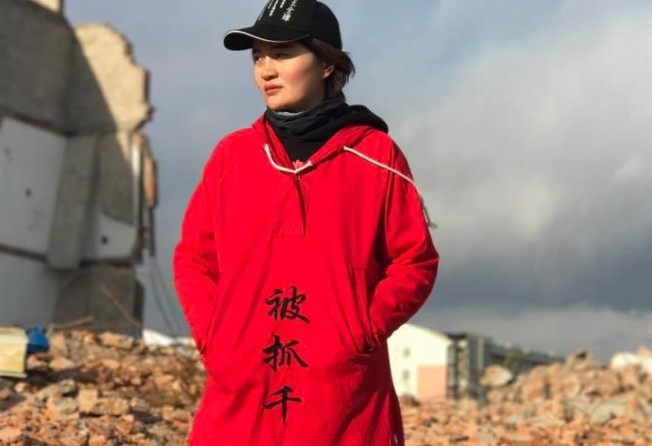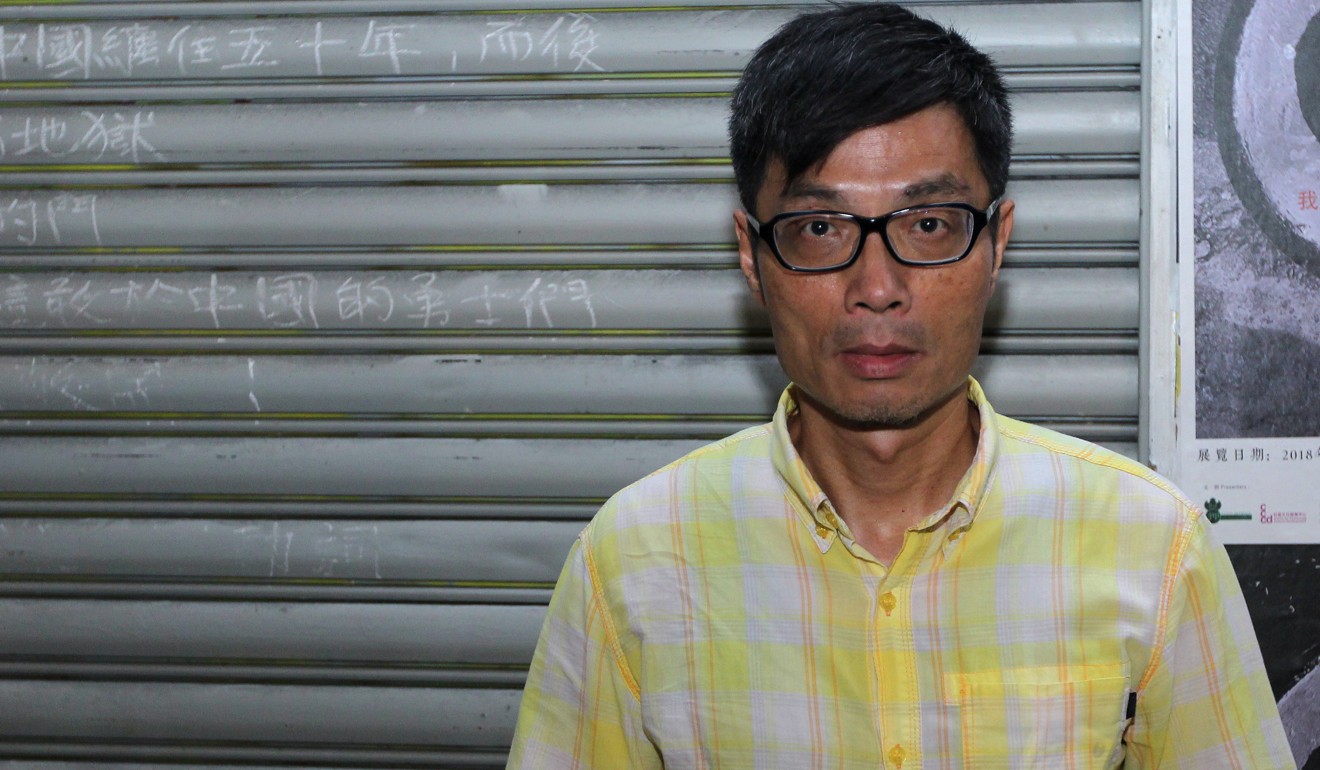
Second Hong Kong film on mainland China’s ‘709’ human rights crackdown shows lives of families seeking asylum in US
Documentary produced by two local journalists marks third anniversary of July 9 round-up in 2015 that involved more than 300 people

On a late summer night in 2017, a Chinese asylum seeker sat alone on the stairs of her home in California, battling insomnia and depression, thinking to herself that perhaps her troubles would end if she died in a car crash.
But Jin Bianling – the wife of human rights lawyer Jiang Tianyong, who has been jailed in Henan, mainland China, following the so-called 709 crackdown – has not given up on making speeches and giving testimony in the United States to seek help for her husband.
Jin’s plight and thoughts, along with other untold stories of how several “709 wives” escaped China with their young children to seek asylum in the US, are documented in a film produced by two independent Hong Kong journalists to mark the third anniversary of the crackdown in July 9, 2015.

More than 300 human rights lawyers, activists and their family members have been arrested, detained, prosecuted or imprisoned over the past three years.
Jiang was convicted and jailed for two years for “inciting subversion of state power” in 2017 – nine months after he was secretly arrested.
Titled 709 The Other Shore, the two-hour documentary, to be released in July, is the second one on the subject produced by Lo King-wah and Kong King-chu, who spent three years interviewing and filming more than 20 individuals caught in the crackdown.
The two documentaries and two related books were commissioned by the China Human Rights Lawyers Concern Group.

Lo and Kong, each with about 20 years of experience in journalism, called on Hongkongers not to abandon those fighting against state suppression across the border.
“I don’t think all hopes are dead … We are documenting the surviving hope … and I reckon Hongkongers are aware of the special role our city has been playing in this,” Lo said.
He cited how Li Wenzu, the wife of another prosecuted human rights lawyer, Wang Quanzhang, thanked Hongkongers for supporting those being suppressed on the mainland in a video clip screened at this year’s June 4 vigil commemorating the Tiananmen Square crackdown of 1989.
Kong said: “While the mainland remains an abyss of suffering [for activists], it’s impossible for Hong Kong to be an intact paradise.
I don’t think all hopes are dead … We are documenting the surviving hope
“Hong Kong is the only Chinese community here where people are free to show support for the lawyers and their families in public. Maybe what we can do is so little that it is no big deal … But every person we interviewed wishes for Hong Kong to continue to be a place where voices [for freedom] can be heard.”
While the first documentary 709 Fellows focused on lawyers and their families who stayed on the mainland in the aftermath of the crackdown, 709 The Other Shore brought audiences to the US and into the lives of 12 activists, lawyers and wives who fled their “major battlefield” to avoid harassment ranging from death threats to denial of their children’s right to an education.
Jin recalled in the film how she and Jiang were beaten up by state agents who stopped them from taking their daughter to school in Beijing. The incident happened during then US president Barack Obama’s visit to China in 2009.
Professor Chen Guiqiu, the wife of another rights lawyer, Xie Yang, said in the film that she decided to leave China when she and her two daughters were denied exit from the mainland and detained separately for hours at Guangzhou East railway station, as they headed to Hong Kong for a trip last February.
As she rebuilt her life in Texas after a successful whirlwind rescue operation in Thailand, Chen said she was still haunted by paranoia.
“There is a stop sign outside our house. Every time a car slows down there, I panic, fearing someone might break into our house,” Chen said in the documentary.
Xie was detained for more than a year before he was indicted and convicted of “inciting subversion of state power” and “disrupting court order” in 2017.
He is currently out on bail and awaiting verdict. Chen revealed in the film that state security officials had rented a flat next to Xie’s and installed two surveillance cameras pointed at his door.